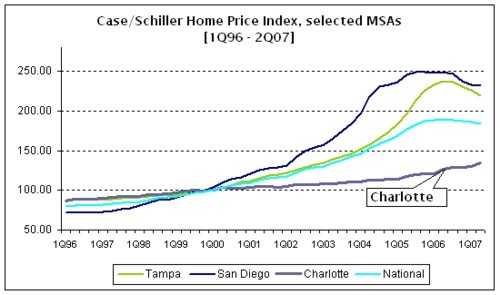
As the sibling of a surgeon, and having been forced into relations with other ‘doctors’ by the big black box in the sky, I often find myself in the middle of conversations about how tough it is to make a living these days. This group is invariably, in my experience, the one amongst the graduate/professionally-educated bunch that does the most complaining. The problem is not that a quarter million annual salary used to be a princely sum, but is now paltry in the neighborhood circles they’ve grown accustomed to but that are now populated with financiers and their peripheral support staffs (even the women employed solely for the purpose of answering phones and setting up conference calls in ‘these neighborhoods’ are better compensated than many a general practitioner –year-end bonus included, of course). Rather, the problem lies in the fact that this self-selected group (more often than not, and of course there are exceptions, those choosing this path do so because of the ease in which the life unfolds once accepted to a medical school –as in, life becomes about getting into medical school, every decision after that is determined by a lottery system or similar, and provided you don’t fall asleep during your boards and are open to changing to an easier specialty, your future can be set without your having to make decisions or exert much initiative), has never experienced the challenge of having to produce an original thought, which also applies to task of earning their living. You go where the system puts you. Period. But, if you’re one of those on the cultural fringe, you say ‘fuck the system’ and you make your own way; case in point: Jay Parkinson, M.D. Instead of complaining about the wealth being made from web revolutions, simply chocking it up to the stilted nature of medicine in the world upon us, and trudging back to his private practice in some New York suburb with his tail between his legs, Mr. Parkinson put his private practice online.
Strange. How does this work?
According to Dr. Parkinson’s website, patients sign up to receive his services by paying an annual fee (currently $500/annum). Dr. Parkinson then contacts the patient, and the two chat about the patient’s medical history. After that, you contact him (via phone, email, IM, or video chat) when you need him and he will respond by ‘getting you exactly what you need.’ Hypotheticals exhibiting how he might service you range from sprains requiring the assistance of specialist to the more frivolous.
Good for patients, bad for Dr. Parkinson?
This system provides obvious benefits to patients. First, care isn’t restricted to an eight-hour window –a window observed by most business, thereby increasing the opportunity cost of spending time in your physician’s office (lost wages, etc…). Second, the time normally lost to patients waiting around for the doctor to finish up with the last guy is reduced, or at least more pleasurable. Imagine you fracture your wrist in the park. You email Parkinson on your Blackberry, he texts you saying he’s busy, but can come down in a half hour. In the meantime, you take a picture of your arm and send it to Parkinson, then duck into a coffee shop. A quick look at the picture and he texts back saying you’ll need to do x, y and z, and he sends you along to a specialist who he has just called…
But, in order for Dr. Parkinson to make ends meet in the village, he’s going to need at least 200 patients (give or take some). With this business model, the doctor has every incentive to increase either the number of patients or the annual service fee…which raises a fundamental issue: moral hazard. When people pay a flat fee for a service, they tend feel the need to abuse it. Dr. Parkinson’s ‘examples’ includes a case in which he provides services to a woman who enlists his help because her boyfriend calls her fat. Patients might be more likely to bombard poor Dr. Parkinson with such requests than they would if they were forced to walk into an office or pay a premium for that visit. Does the service really allow Parkinson to service more patients if he’s receiving more requests but the marginal savings to time expended per patient is minimal? At some point, I imagine Parkinson will raise his fee in order to better serve patients if requests get out of hand. He might even apply a small premium per call received, so as to combat the frivolous requests that would never illicit demand for institutionalized medical services otherwise. The beauty of this business model is that Dr. Parkinson is in control of his fee structure, and can change it to meet his own and his patient demographics’ changing demands without the constraint of hefty fixed costs associated with the traditional system. HT: [Gawker]


